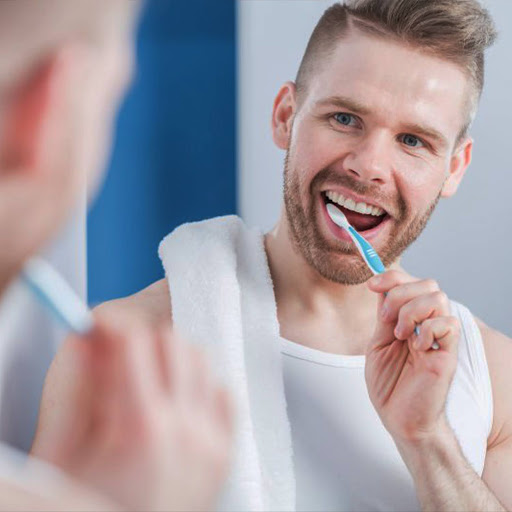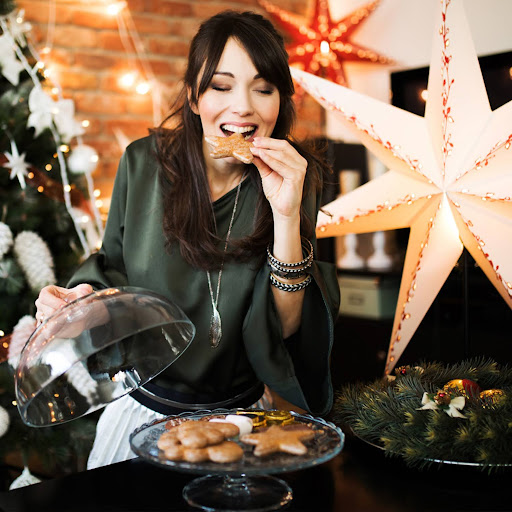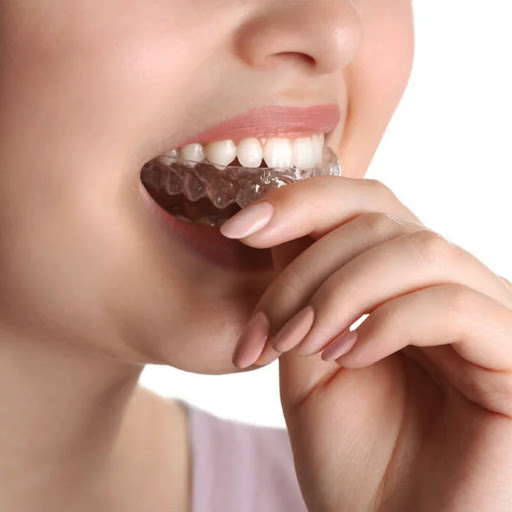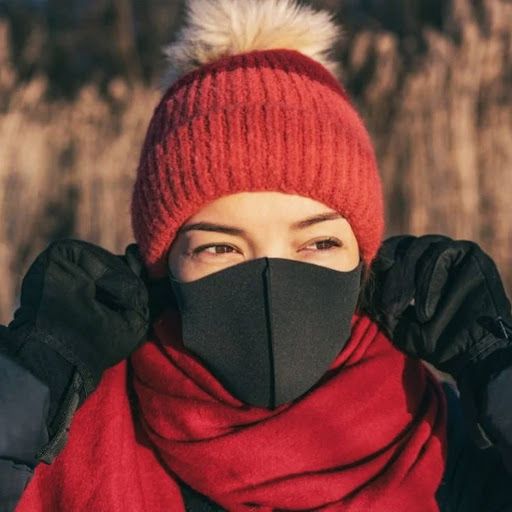
Introduction
Winter brings cozy blankets, warm drinks, and festive celebrations. However, the colder months also have unique challenges for oral health. As temperatures drop, your teeth can become more vulnerable to sensitivity, dryness, and even damage. To ensure your smile stays healthy and radiant throughout the season, it’s essential to adopt specific habits that cater to winter-related oral concerns. shares comprehensive tips to protect your teeth during winter while keeping things easy to follow and practical.
Summary
1. Understanding Winter’s Impact on Oral Health
2. Stay Hydrated to Combat Dry Mouth
3. Avoid Extreme Temperature Changes
4. Maintain a Consistent Oral Hygiene Routine
5. Protect Your Teeth Against Sensitivity
6. Snack Wisely During Winter Festivities
7. Prevent Teeth Grinding and Clenching
9. Regular Dental Check-Ups Are Essential
10. Dress Warm to Protect Your Jaw
11. Watch Your Vitamin D Intake
12. Invest in a Quality Toothbrush
1. Understanding Winter’s Impact on Oral Health

Before diving into specific tips, it’s important to understand how winter affects your teeth and gums. The cold weather can trigger tooth sensitivity, increase dryness in your mouth, and lead to the buildup of plaque and bacteria.
Exposure to cold air or sudden temperature changes, like sipping on a hot coffee followed by walking outside in freezing weather, can strain your enamel. Additionally, many people indulge in sugary treats and neglect regular oral care during winter festivities, increasing the risk of cavities. Understanding these challenges helps you stay proactive.
2. Stay Hydrated to Combat Dry Mouth

One common issue during winter is dry mouth, caused by indoor heating systems that lower humidity levels. Saliva plays a vital role in washing away bacteria and maintaining a healthy pH balance in your mouth.
Keep a bottle of water with you throughout the day to stay hydrated. Consider using a humidifier at home to add moisture to the air, which can alleviate dry mouth. Chewing sugar-free gum helps boost saliva flow, keeping your mouth hydrated and refreshed.
3. Avoid Extreme Temperature Changes

During winter, the temptation of hot drinks like tea and cocoa is hard to resist. However, alternating between hot beverages and exposure to cold air can cause your teeth to expand and contract, leading to cracks or sensitivity.
To protect your teeth, allow hot drinks to cool slightly before consuming them. If you’re stepping out into the cold, keep your mouth covered with a scarf to minimize direct exposure to freezing air.
4. Maintain a Consistent Oral Hygiene Routine

The busy nature of the winter holidays often throws off regular routines, including oral care habits. Skipping even a single brushing session can lead to plaque buildup, which becomes harder to remove over time.
Make it a priority to brush twice daily with fluoride toothpaste and floss at least once daily. If you’re enjoying festive sweets, rinse your mouth with water after indulging to prevent sugar from clinging to your teeth.
5. Protect Your Teeth Against Sensitivity

Cold weather often exacerbates tooth sensitivity, making enjoying your favorite winter activities uncomfortable. Opt for toothpaste designed for sensitive teeth, as it can help block pain signals from reaching your nerves.
Additionally, avoid acidic foods and drinks that can wear down your enamel. Regular dental check-ups are vital for diagnosing and addressing sensitivity issues before they worsen.
6. Snack Wisely During Winter Festivities

The holiday season is synonymous with sugary treats and carb-heavy comfort foods. While it’s fine to indulge occasionally, frequent snacking can harm your teeth. Sugary foods create an acidic environment in your mouth, leading to tooth decay.
Choose healthier options like yogurt, nuts, or crunchy vegetables such as carrots and celery. If you can’t resist a sweet treat, enjoy it with a meal, as the increased saliva production during eating helps neutralize acids.
7. Prevent Teeth Grinding and Clenching

Stress levels can rise during the holidays, leading to teeth grinding (bruxism) and clenching. These habits can lead to enamel wear, jaw discomfort, and headaches. Winter cold may also increase tension in your jaw muscles.
Think about wearing a custom night guard to safeguard your teeth while you sleep. Stress-relief practices like yoga, meditation, or even a relaxing cup of herbal tea can help you manage holiday stress and avoid clenching.
8. Pamper Your Lips and Mouth

Cold, dry air can cause lips to crack and gums to become dry. Protect your lips with a balm that includes SPF, as the winter sun can still cause damage.
Remember to care for your gums, as they are essential in supporting your teeth. Massage your gums gently while brushing, and ensure your diet includes vitamin C-rich foods like oranges to keep them healthy.
9. Regular Dental Check-Ups Are Essential

Many people postpone dental visits during the holiday season due to busy schedules. Routine dental visits are crucial for maintaining excellent oral health. Dentists can detect early signs of decay or gum disease and perform professional cleanings to eliminate persistent plaque.
Schedule a dental appointment early in the season to avoid conflicts with holiday plans. This way, you can celebrate the festivities with a smile full of confidence.
10. Dress Warm to Protect Your Jaw

Cold weather can also affect your jaw and facial muscles, causing discomfort or stiffness. Wrap up with scarves and hats to shield your face from the cold.
If you experience persistent jaw pain, it’s essential to see your dentist. They can recommend exercises or treatments to alleviate discomfort caused by cold weather or stress.
11. Watch Your Vitamin D Intake

Winter often reduces sunlight exposure, leading to lower vitamin D levels. Vitamin D is essential for helping the body absorb calcium, making it important for maintaining strong teeth and bones.
Add vitamin D-rich foods like fatty fish, eggs, and fortified dairy products to your diet. If necessary, talk to your doctor about supplements to ensure your teeth stay strong during the colder months.
12. Invest in a Quality Toothbrush

Using the right toothbrush can make a big difference in protecting your teeth. During winter, opt for a soft-bristled toothbrush to prevent enamel damage, especially if your teeth feel sensitive.
Change your toothbrush every three months or earlier if the bristles start to wear out. Electric toothbrushes are also a great investment for thorough cleaning and maintaining healthy gums.
FAQs
Q.1. Why do teeth feel more sensitive during winters?
A.1. Cold temperatures can cause enamel to contract, exposing nerves and leading to sensitivity.
Q.2. What’s the best way to prevent dry mouth in winter?
A.2. Stay hydrated, use a humidifier, and consider sugar-free gum to stimulate saliva production.
Q.3. How often should I visit a dentist during winter?
A.3. Regular check-ups every six months are ideal, but visit sooner if you experience discomfort.
Q.4. Can cold weather damage teeth permanently?
A.4. Without proper care, extreme temperature changes can cause cracks or exacerbate existing issues.
Q.5. What foods should I avoid for better oral health in winter?
A.5. Limit sugary and acidic foods, and opt for tooth-friendly snacks like nuts and vegetables.
Conclusion
Winter can be tough on your oral health, but with these tips, you can protect your teeth and enjoy the season worry-free. Stay hydrated, maintain a solid oral care routine, and pay attention to your diet. Don’t forget the importance of regular dental check-ups and addressing issues like sensitivity or grinding.
By taking these proactive steps, you can ensure that your teeth remain strong, healthy, and ready to dazzle in every winter photo. Let your smile shine brightly, no matter how chilly it gets outside!
For personalized assistance or to book a consultation, contact our team at (267) 908-4867 or visit our website at https://premierperiodonticspa.com/contact-us/. Your smile is our top priority, and we’re dedicated to providing the care and support necessary for a smooth dental experience. Allow us to help you achieve a bright, healthy smile with expert care customized to your needs.









